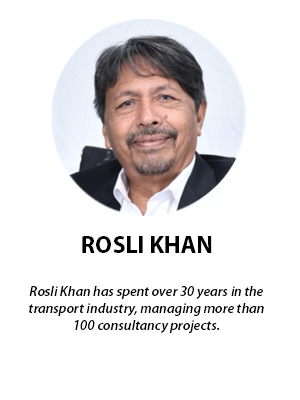
It is high time the monopoly on vehicle inspection comes to an end. Kudos to the transport minister for finally taking the necessary steps to address this matter.
The transition of the vehicle inspection unit from the road transport department (JPJ) to Puspakom, a private entity, in 1994 raised eyebrows and was seen by numerous vehicle proprietors and operators, including myself, as a poor policy initiative.
Lucrative monopoly
A highly profitable venture, it has raked in more than RM10 million per month. The company is estimated to have drawn an income of between RM100 to RM150 million per year, or anywhere between RM3 billion and RM4.5 billion over the last 30 years.
The monopoly, which has had a stranglehold on the transport sector for almost 30 years, ends on Aug 31, 2024.
However, in March 2023, the government also announced an extension of its concession for another 15 years, until August 2039.
Safety?
Unfortunately, safety in the industry has not improved by much. Road accidents, including those that result in deaths, have continued to spike, giving rise to questions about the effectiveness of the inspectorate body.
Little headway has been made to address issues such as vehicle overloading, which has led directly to many road accidents.
Nor has it broadened the expertise of local mechanics or managers, by offering new insights and training to road safety professionals.
Some of the policies introduced have been questionable.
For instance, the requirement for vehicle owners to bear inspection fees each time a vehicle changes ownership appears utterly nonsensical. How does this contribute to enhancing road safety, the key driver for the setting up of the vehicle inspection unit in the first place?
Breaking the monopoly
Breaking the vehicle inspection monopoly is undeniably a commendable policy for the road transport sector in this country and is long overdue.
I anticipate that this new open approach, which fosters competition among service providers, will see a shift towards prioritising vehicle safety and roadworthiness, core objectives of vehicle inspection.
Its primary aim must be to ensure that all commercial vehicles maintain roadworthiness by adhering to maintenance schedules and are kept in optimal condition.
It is imperative that the ministry use this opportunity to realign vehicle inspection with the fundamental objectives of ensuring road safety through vehicle reliability.
New service providers
This new initiative aims to attract new players, known as new Vehicle Inspection Service Providers (VISP), into the market.
However, it is worth noting that Puspakom will continue to operate as a service provider, as its contract has been extended for 15 years from Sept 1, 2024.
Consequently, the new VISPs will find themselves in direct competition with the existing operator.
This competitive landscape explains the stringent guidelines set for new VISPs, including requirements such as RM10 million in authorised capital and RM5 million in paid-up capital.
Clearly, the arena has been reserved for the “big boys”, in contrast to the UK practice of catering to smaller workshops.
UK model
The UK’s approach to vehicle inspection continues to stand as a shining example of efficiency and fairness.
Unlike the monopolistic practices seen here, the UK approach not only eliminates the possibility of corruption but also offers a boost to local workshops’ incomes, thereby stimulating the local economy.
This policy is a win-win for all involved, enhancing the skills of motor mechanics and ensuring rigorous roadworthiness inspections.
Moreover, it streamlines the process for vehicle owners, sparing them from bureaucratic hassles and providing added convenience.
Adopting a similar approach in Malaysia could yield significant benefits, fostering a more competitive and transparent vehicle inspection landscape while bolstering the local economy and improving road safety standards.
Between the two approaches, the UK model presents a more favourable option.
Hopefully, the authorities will allow smaller workshops to be part of the new inspection regime in the near future. - FMT
The views expressed are those of the writer and do not necessarily reflect those of MMKtT.



No comments:
Post a Comment
Note: Only a member of this blog may post a comment.